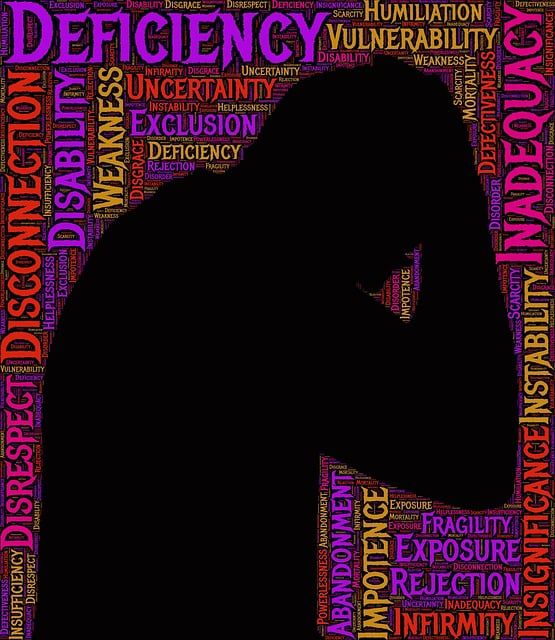Substance abuse among individuals with developmental disabilities in Colorado Springs is addressed through specialized therapy services, early intervention, and community engagement. Tailored programs like Cognitive Behavioral Therapy (CBT) and Family-Based Therapies focus on modifying risky behaviors and building self-care routines. Peer support networks and mindfulness practices empower recovery while reducing stigma. Long-term management emphasizes holistic growth, personalized coping strategies, and relapse prevention for lasting change in a supportive Colorado Springs environment.
In Colorado Springs, addressing substance abuse among individuals with developmental disabilities is paramount. This comprehensive guide explores effective risk reduction strategies tailored to this unique population’s challenges. We delve into understanding the complex interplay of substance misuse and developmental disabilities, emphasizing the importance of early intervention and prevention. Through evidence-based therapies, community engagement, and peer support networks, we empower recovery and long-term management, offering hope for a brighter future in Colorado Springs developmental disability therapy.
- Understanding Substance Abuse and Its Impact on Individuals with Developmental Disabilities in Colorado Springs
- Creating a Supportive Environment: Early Intervention and Prevention Strategies
- Evidence-Based Therapies for Risk Reduction: A Comprehensive Approach
- Community Engagement and Peer Support Networks: Empowering Recovery
- Long-Term Management and Relapse Prevention Techniques for Lasting Change
Understanding Substance Abuse and Its Impact on Individuals with Developmental Disabilities in Colorado Springs

Substance abuse is a complex issue that disproportionately affects individuals with developmental disabilities. In Colorado Springs, where access to specialized therapy and support services is crucial, understanding this relationship is essential for comprehensive care. Many people with developmental disabilities may turn to substances as a form of self-medication to cope with underlying mental health challenges or social pressures, often exacerbating existing conditions. This phenomenon requires tailored interventions that address both the substance abuse and the underlying developmental needs.
Colorado Springs, known for its vibrant community and Mental Wellness Podcast Series Production, has been at the forefront of stigma reduction efforts for mental illness. Local initiatives focus on early intervention, promoting inner strength development, and providing accessible therapy options specifically tailored to individuals with developmental disabilities. By integrating these strategies into the local landscape, Colorado Springs aims to foster a supportive environment that prevents substance abuse, enhances recovery, and promotes overall mental wellness among its diverse population.
Creating a Supportive Environment: Early Intervention and Prevention Strategies

Creating a supportive environment is a cornerstone of risk reduction strategies for substance abuse, especially in communities like Colorado Springs where developmental disability therapy services are accessible. Early intervention and prevention play a crucial role in breaking down potential barriers to treatment and recovery. By implementing effective communication strategies, mental wellness coaching programs can be tailored to meet individual needs, fostering an inclusive atmosphere that encourages open dialogue about substance abuse risks and safe alternatives.
This supportive setting becomes a breeding ground for conflict resolution techniques, empowering individuals to navigate challenging situations without resorting to substances as coping mechanisms. Through these interventions, communities can proactively address the root causes of substance abuse, ensuring that everyone has access to the resources they need to thrive.
Evidence-Based Therapies for Risk Reduction: A Comprehensive Approach

Evidence-Based Therapies for Risk Reduction play a pivotal role in addressing substance abuse issues, particularly for individuals with developmental disabilities. Specialized programs in Colorado Springs that integrate Developmental Disability Therapy leverage research-backed strategies to tackle this complex challenge holistically. These therapies focus on modifying risky behaviors by identifying triggers and teaching effective coping mechanisms.
One such evidence-based approach is Cognitive Behavioral Therapy (CBT), which helps individuals recognize negative thought patterns and replace them with healthier alternatives. By fostering self-care routine development, CBT promotes mental wellness while considering cultural sensitivity in mental healthcare practice. Additionally, Family-Based Therapies engage loved ones, creating a supportive network that reinforces positive behavior change and enhances overall mental health.
Community Engagement and Peer Support Networks: Empowering Recovery

Community Engagement and Peer Support Networks play a pivotal role in empowering individuals on their journey to recovery from substance abuse. In Colorado Springs, where Developmental Disability Therapy is accessible, these networks offer a unique and powerful support system. By fostering connections between peers with shared experiences, individuals in recovery can find understanding, encouragement, and accountability. This sense of belonging and camaraderie significantly enhances the effectiveness of recovery strategies, including Anxiety Relief techniques like Mindfulness Meditation, which has been shown to reduce cravings and promote better coping Skills Development.
Peer support groups provide a safe space for members to share their stories, challenges, and successes without judgment. This open dialogue not only reinforces positive behaviors but also helps dispel myths and reduce stigma associated with substance abuse and developmental disabilities. As individuals see others successfully navigating recovery, they gain hope and motivation to maintain their own path toward healing, ultimately strengthening the community’s overall resilience against substance misuse.
Long-Term Management and Relapse Prevention Techniques for Lasting Change

Long-term management for substance abuse involves a commitment to ongoing change and personal growth. It’s not just about achieving sobriety but learning to maintain it for life. Colorado Springs developmental disability therapy centers often employ holistic approaches, focusing on more than just treating symptoms. This includes teaching individuals coping mechanisms, stress management techniques (a crucial aspect of Mind Over Matter principles), and trauma support services to address underlying issues. By integrating these strategies into daily life, individuals can build resilience and reduce the risk of relapse.
Relapse prevention is a key component of long-term success. It involves identifying triggers, understanding cravings, and developing personal strategies to navigate challenging situations. Through counseling and therapy, individuals learn to recognize early warning signs and implement effective solutions. By fostering a mindset that promotes self-care and emotional well-being, Colorado Springs developmental disability therapy can empower individuals to make healthier choices and sustain lasting change.
In addressing substance abuse among individuals with developmental disabilities in Colorado Springs, a multi-faceted approach combining early intervention, evidence-based therapies, community engagement, and long-term management strategies is essential. By fostering a supportive environment and empowering peer support networks, we can significantly reduce risks and promote lasting recovery. Colorado Springs developmental disability therapy benefits from these integrated risk reduction strategies, ultimately enhancing the quality of life for those affected by substance abuse.













